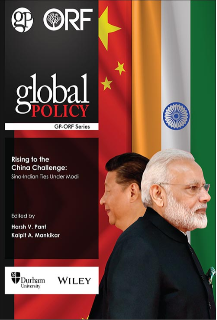
The 8 May 2020 notification by the Uttar Pradesh government suspending all labour laws is unconstitutional and regressive. Hurriedly drafted with little more than a short-term outlook, it will not attract any investment into India’s most populous state. Worse, it could create labour-capital hostility and cart the state back to the 1970s, with constant clashes between trade unions and managements. This notification will not pass the Union government’s executive signature and the President’s assent, under Article 254(2), necessary since labour is a concurrent subject — Entries 22, 23 and 24, List III of the Seventh Schedule read with Article 246 of the Constitution of India. And in case it does, the judiciary should, and will, declare it void. Finally, a three-year moratorium on laws is not a trigger for investment, the core objective; it is a deep dive into the ocean of policy uncertainty.
Here’s what the official release, based on decision of the Uttar Pradesh Council of Ministers, states:
It is needed to give concessions to new industrial investments, new industrial establishments as well as ongoing industrial establishments and factories from the operation of labour laws, temporarily for some period of time. Hence, in the next three years, operation of current labour statutes are allowing certain concessions, as it has become imperative. An enabling ordinance has been brought for temporary exemptions, namely Uttar Pradesh (Temporary Exemptions from Certain Labour Laws) Ordinance 2020.
This Ordinance is not available yet and we wait for it to be made public.
Barring three, all laws, rules and regulations covering factories, shops and offices, stand suspended for three years. The three exceptions are — laws on bonded labour (Bonded Labour System (Abolition) Rules, 1976), for construction workers (Building and Other Constructions Workers (Regulation of Employment and Conditions of Service) Act, 1996), and regulations around employee compensation in case of accidental injury, and timely payment of wages to employees (Workmen’s Compensation Act, 1923). While precise details are awaited, the implications based on current reading are regressive.
Suspension of minimum wages
The suspension of Minimum Wages Act, 1948 read with Uttar Pradesh Minimum Wages Rules, 1952, under which a minimum wage has to be paid to workers, will impact their earnings negatively on the political and economic front (a matter of executive decision) and is a violation of workers’ fundamental rights on the constitutional side. So, while wages will be paid on time under the Workmen’s Compensation Act, 1923, the amounts need not be in tune with the Minimum Wages Act and Rules.
This suspension is in breach of fundamental rights. “Every person who provides labour or service to another is entitled at least to the minimum wage and if anything less than the minimum wage is paid to him, he can complain of violation of his fundamental rights under Article 23 and ask the court to direct the payment of the minimum wage to him so that the breach of Article 23 may be abated,” the Supreme Court ruled in the Sanjit Roy versus the State of Rajasthan judgement, (1983) 1 SCC 525, Para 3. “We are of the view that…the fundamental right enshrined in Article 23…is violated by non-payment of minimum wage to the workmen,” the Supreme Court had ruled a year earlier, in the People’s Union for Democratic Rights and others versus Union of India and others judgement, (1982) 3 SCC 235, Para 11.
Suspension of factory laws
The suspension of the Factories Act, 1948, read with the Uttar Pradesh Factories (Safety Officers) Rules, 1984, the Uttar Pradesh Factories Rules, 1950, and the Uttar Pradesh Factories Welfare Officers' Rules, 1955, will have wide adverse impact. These laws regulate two aspects of labour – benefits and safety. With their suspension, the following aspects will end on the financial front: working hours, leaves, holidays and overtime rules; facilities to women employees; canteen facilities; and suchlike.
But what is even more worrying is the impact on workers on the safety side. With their suspension, the following features are under threat: fire safety rules; rules around facilities like first aid; safety equipment and related committees; maintenance and examination of critical equipment like lifting machines, pressure vessels, hygrometers, electrical apparatuses, ovens and dryers, and so on. The most dangerous for workers and society alike will be the suspension of regulation of hazardous processes and waste management. The 7 May 2020 gas leak incident at the Visakhapatnam polymer factory, LG Polymers India Pvt, that left more than 300 people in hospitals, is still an ongoing crisis.
Suspension of shops and offices laws
With the suspension of the Shop and Establishment Act, 1953 read with the Uttar Pradesh Dookan Aur Vanijya Adhishthan Adhiniyam, 1962, and the Uttar Pradesh Dookan Aur Vanijya Adhishthan Niyamavali, 1963, the service industry will be affected. This is a law designed to regulate the payment of wages, hours of work, leave, holidays, terms of service and other work conditions of people employed in shop and commercial establishments. Specifically, these laws oversee hours of work, rest days, festival holidays, weekly holidays, leave rules, overtime rules, working in night shift, health, safety and welfare including first aid and fire safety.
Additionally, rules framed for women employees will not be applicable anymore. Hence all protections through rules given to women workers, including sexual harassment rules, and facilities to women employee (night shifts, transportation facilities) will be nullified. Separately, the suspension will impact the maternity benefits to pregnant women workers.
List of suspended major laws
Here is a list of 18 major laws that Adityanath has suspended. By no means, the list is short. In fact, there is over-regulation in the domain of India’s business. But while the excessive laws and regulations are a problem, suspending them blindly is not the answer. It needs deeper thought, greater application of mind.
- Uttar Pradesh Contract Labour (Regulation and Abolition) Rules, 1975
- Uttar Pradesh Factories (Control of Industrial Major Accident Hazards) Rules, 1996
- Uttar Pradesh Factories (Safety Officers) Rules, 1984
- Uttar Pradesh Factories Rules, 1950
- Uttar Pradesh Factories Welfare Officers’ Rules, 1955
- Uttar Pradesh Industrial Employment Model Standing Orders, 1991
- Uttar Pradesh Inter-State Migrant Workmen (Regulation of Employment and Conditions of Service) Rules, 1983
- Maternity Benefit Act, 1961 (Applicable for Uttar Pradesh)
- Uttar Pradesh Industrial Dispute Act, 1947 and Rules, 1957
- Uttar Pradesh Minimum Wages Rules, 1952
- Uttar Pradesh Payment of Gratuity Rules, 1975
- Uttar Pradesh Payment of wages Rules 1936
- Uttar Pradesh Private Security Agencies Rules, 2009
- Uttar Pradesh Dookan Aur Vanijya Adhishthan Adhiniyam, 1962
- Uttar Pradesh Dookan Aur Vanijya Adhishthan Niyamavali, 1963
- Uttar Pradesh Industrial Establishments (National Holidays) Act, 1961
- Uttar Pradesh Industrial Establishments (National Holidays) Rules, 1965
- Uttar Pradesh Labour Welfare Fund Act, 1965 and Uttar Pradesh Labour Welfare fund Rules, 1972
All this chaos for three years
We wonder what this policy will deliver to Uttar Pradesh. Even if we believe that these suspensions are fine and pass the Union and Judicial muster, we fail to understand what Adityanath will get or how Uttar Pradesh will benefit by designing a policy for just three years or how such a policy will attract long-term capital. Investors need policy stability, consistency and predictability. A three-year window of regulatory concessions add up to nothing for any new and serious investor. By the time a factory is built and all licences and permissions received, it could take anything between 18 to 24 months.
The reform stories of two chief ministers
Yogi Adityanath is using the brute force of an axe to hack laws, rules and regulations, while all it needs is a scalpel to conduct a surgery and remove the gangrene of rent-seeking, red tape and other frictions to doing business. Yogi must learn from Madhya Pradesh Chief Minister Shivraj Singh Chouhan, who has delivered real reforms, with the same policy objective of making the state more attractive to investors. But he has done it with a far greater political, labour and legal sensitivity.
There are five sets of reforms that Chouhan has unleashed, all of which will attract capital, entrepreneurs, jobs, wealth and growth to Madhya Pradesh. These reforms are around processes — registration in a day, licences for 10 years instead of one, shops to be open from 6 am till midnight, reduction in registers from 63 to one and returns from 13 to one, and raising the threshold for labour inspections to factories employing 50 labourers from 20 earlier.
Across India, reducing regulatory cholesterol is one thing. But suspending all laws, rules and regulations is like throwing the baby with the bathwater. If the two chief ministers are to be compared, Chouhan’s policies show maturity and experience, Adityanath’s the whims of thoughtless action. The intentions of both are the same — attract industry to their respective states, create jobs. But while Chouhan has gone about it within the purview of law, while Adityanath is standing on the edge. He must retract this policy, rethink the details through and redraft new policies. If he doesn’t, the Union and the Judiciary will. And if policy thought is too much trouble, he could simply copy-paste Chouhan’s policies.
The views expressed above belong to the author(s). ORF research and analyses now available on Telegram! Click here to access our curated content — blogs, longforms and interviews.




 PREV
PREV



